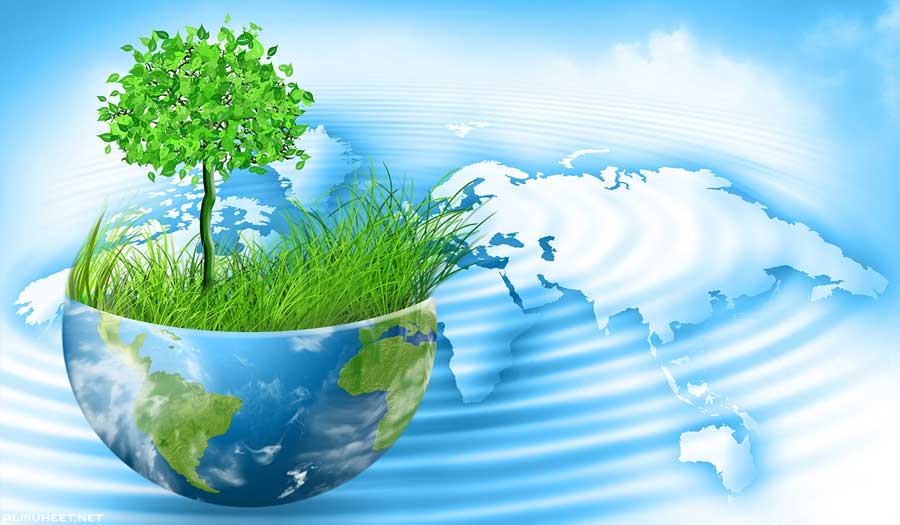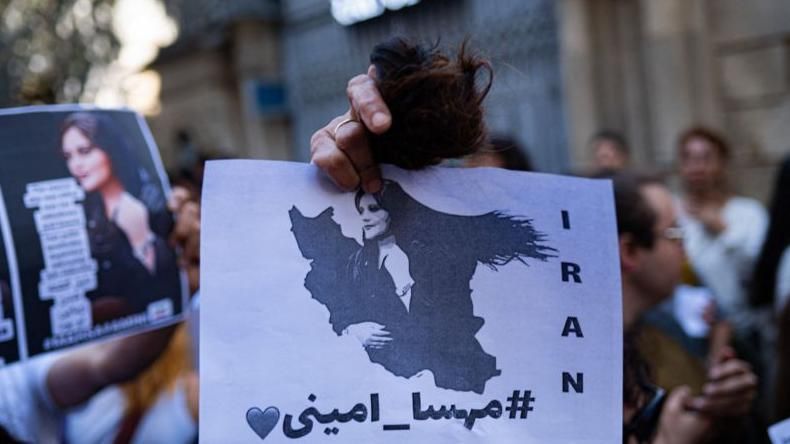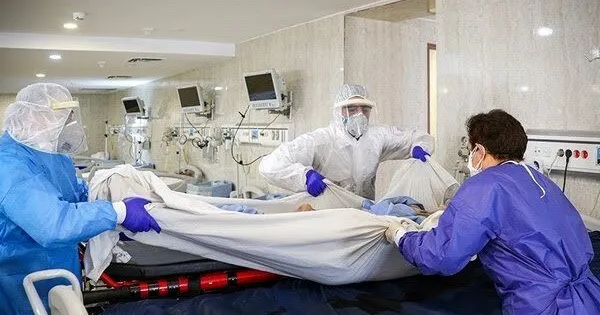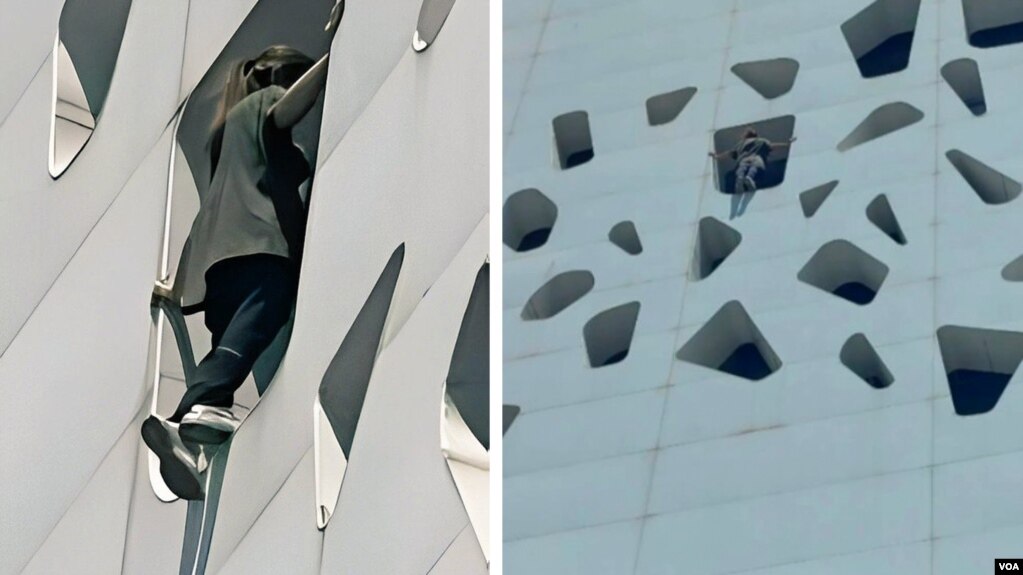
Discrepancy Between Statistics and Reality
The editorial of Arman Melli underscores the fact that the statistics offered by Iranian President Ebrahim Raisi do not reflect reality.
It has been said again and again that Raisi trusts the statistics given to him by his advisors. But when these statistics are presented in the media, it is the president, not one of his advisors, who is stating them. When these statistics are stated and the world starts talking about them, then it is the president who will be responsible for them. So the president must have advisors from outside the government to verify these statistics.
Then it will become clear that there is a difference between official statistics and the stark reality faced by society. If this measure is not taken, everything will continue as in the past two years and history will not remember the officials in Raisi’s government favorably.
Many people in Iran cannot afford to have a decent life. Then when it is said that Iran’s economic growth is at 4%, the very people who are deprived of a decent life will be the first to express their criticism and dissatisfaction.
In 2021, Raisi promised to uproot absolute poverty in Iran. Some advisors give the president some statistics and he quotes them. Did not one of his ministers promise to create 1 million jobs? Did they not promise to bring down the price of the dollar significantly by injecting $150 million into the market? Those who made such claims were promoted and found better positions, just because some people would like to hear such things.
So the best way is to verify such claims and statistics. If government officials are telling the truth and firmly believe in what they are saying, they must hold a poll. Or the president can personally talk to the heads of the different unions. For example, he can talk to the head of the meat and protein union and ask him about how much meat people are consuming per capita and how much meat consumption has dropped in the past two years. Or Raisi can talk to the head of the housing union to ask about how much tenants are under pressure for renting a place to live.
Saying It With Full Knowledge
The editorial of Etemad states that supporters of the Iranian government are making ridiculous and illogical arguments against critics of the government – arguments so poor that even their families, the editorialist urges, do not believe them.
These days some people are making illogical arguments, apparently not aware that what they are saying is so ridiculous and illogical. Or else they would not have made them to argue with – and silence – their opponents.
For example, when it was said that even during the shah’s regime before the revolution in Iran, university professors were not fired as they are today, these people refer to a letter written by SAVAK (the shah’s intelligence service) regarding banning a professor from teaching. Or they say that even in the United States some academics have lost their jobs for their political stances. As for Iranian celebrities, they make the same arguments that this or that Hollywood actor was banned for making a comment. In another example, the culture minister said that because no one is allowed to hold music concerts in the Vatican, there should not be any concerts in the cities of Mashhad and Qom.
Those who make such arguments are in fact justifying the actions of SAVAK and the United States and approving of their incorrect measures. If SAVAK fired this or that university professor and the United States did the same, can this be a good reason for firing university professors? If it is a good reason, SAVAK and the United States have done thousands of indefensible things. Can those be defended too?
As for holding concerts, is it legitimate and based on Sharia or not? Any act that is acceptable under Sharia can be performed anywhere in the world. And if it is not, then it is banned everywhere.
If firing university professors is not acceptable, it does not become legitimate just because SAVAK did the same. If holding concerts is acceptable according to Sharia, then it makes no difference if it is in Qom or not.
They should put forward any logical argument, if there is any, for ratifying the new hijab law for women, the devastating internet restrictions, the dismissal of university professors, etc. But the way they are arguing for these cases is not acceptable even to their own families. “I say that with full knowledge,” concludes the editorialist.
How Small We Have Become!
The editorial of Donya-e-Eqtesad explains why Iran joining BRICS will not significantly contribute to its economy.
The news of Iran joining BRICS created high hopes in the beginning. But taking a look at the statistics of member countries of BRICS as well as Iran’s limitations raises this question: what is Iran’s objective in joining this organization and how can it benefit from it?
China is the biggest member of BRICS. Its trade with BRICS countries in 2022 reached to about $540 billion, while its trade with the United States was $750 billion that year. China’s trade with Iran, interestingly, was $15 billion in 2022, while its trade with Saudi Arabia and the UAE amounted to $116 billion and $99 billion respectively.
We must also keep in mind that China has a strategic deal with Iran, while it does not have any such deals with the Gulf states. But China’s trade with these countries is several times more than Iran. These numbers show that even when new countries join BRICS, China will care more about its trade with the United States than with the BRICS countries.
Now the question is: why China — as Iran’s most significant trading partner that had only $15 billion of trade with Iran last year — has encouraged and convinced Iran to join BRICS?
Iran’s oil and gas infrastructure has deteriorated so much that it might become obsolete without huge investments. So, given Iran’s economic situation, China cannot have high hopes for Iranian markets or importing oil and gas from Iran.
Perhaps, what has largely motivated China and Russia in helping Iran to join BRICS has nothing to do with the economy. Iran, however, can take advantage of this situation. But as everybody knows, if the issue of the FATF bills is not resolved, Iran cannot establish economic relations with the members of BRICS. Just as it could not expand relations with China after establishing a strategic relationship with China. The same can be said about Russia.
So in future, too, Iran will not be able to undertake transactions with the BRICS countries unless the FATF issue is resolved and its relations with other countries are normalized. Iran must stop the deterioration of its economy by joining the FATF and streamline relations with other countries in order to attract investments and normalize its exports and imports. Without such an approach, it cannot enjoy its presence in BRICS or any other such organization.
People’s Basic Rights Have Been Forgotten
The editorial of Etemad sheds light on how despite what Iranian officials keep saying, people’s basic rights, as stipulated in the Constitution, are ignored.
In the week celebrating Iran’s judicial system, judiciary officials kept taking about the necessity of ensuring people’s legitimate freedoms. But the truth is that for 44 years, people’s legitimate freedoms and basic rights have been frequently disregarded.
In Iran, many writers, intellectuals, civil activists, attorneys, politicians and even judges have been prosecuted and even lost their lives for emphasizing on lawful freedoms and defending them. In this regard, one can mention the murder of author Ali-Akbar Sa’idi Sirjane, systematic murders by Iran’s Intelligence Ministry, as well as many figures who lost their lives in prisons.
These lawful freedoms are stipulated in Article 3 of Iran’s Constitution. But the problem is that these freedoms are forgotten and whenever ordinary people, academics, etc. have pointed to the fact that the article’s stipulations have been ignored, they have had to face many problems.
Just recently, many university professors and instructors were reportedly prosecuted or dismissed. This implies that notwithstanding judicial officials’ emphasis on ensuring lawful freedoms, these issues are not only ignored, but are violated by the judicial system and other organizations within the country.
It should not be forgotten that one of the most important principles in the Constitution is that all individuals are equal before the law. But in Iran, 12% to 15% of the population consist of ethnic groups (Turks, Kurds, Balochis, Arabs…) that have never had equal rights with other citizens in education, the administration of the country, holding important managerial positions, etc.
Other issues related to legitimate freedoms include free speech, equality of rights for women and men, preserving individuals’ dignity, life, property, rights and free media, etc. Nonetheless, there is not a single day in Iran when journalists, artists, singers and many others are not summoned, arrested, charged and jailed for expressing their views.

Iran, Saudi Officials Discuss Environmental Issues

Head of the Department of Environment Ali Salajegheh met with Saudi Arabia’s CEO of the National Center of Meteorology Ayman bin Salem on the sidelines of the international summit on sand and dust storms.
In this meeting Salajegheh stated that Iran and Saudi Arabia have a lot in common but the “enemies are after creating differences between the two countries which will damage the Islamic countries and benefit the enemies.”
He added that together “we can create good days for the world of Islam and believe that our joint [religious] precepts and joint religion can bring mankind happiness.”
Salajegheh pointed to the fact that Iran and Saudi Arabia are to a large extent familiar with sand and dust storms, adding that the Iranian people, particularly in Sistan and Balochistan, have suffered from this issue.
Similarly, Salem urged that strong Islamic ties connect Iran and Saudi Arabia, adding that “we are after expanding relations to create a better future for both countries.”
He went on to say that Saudi Arabia has different projects in the field of the environment which can include the neighboring countries and “we are after regional cooperation for resolving the issue of dust storms and are ready to share our achievements and experiences in this regard.”
Salem underscored that Saudi Arabia’s Crown Prince Mohammad bin Salman has launched two big environmental initiatives for the Middle East and has asked other countries to take part in this plan, which makes Iran’s cooperation in this regard very important.
Mahsa Amini’s Death Anniversary: Her Parents Announce Holding Ceremony; Activists Call for Launching Strikes

As the death anniversary of 22-year-old Mahsa Amini who was murdered in police custody approaches, her parents announced they would hold a “traditional and religious anniversary” for their daughter amid the government’s intensifying repressive measures.
Upon publication of this message on social media, Amini’s father, Amjad Amini, was summoned to the intelligence office and interrogated for an hour. He was pressured to cancel the ceremony for his daughter and retract the announcement, according to his relative who spoke with Radio Farda.
Amjad Amini was also threatened that if he or his family undertake any activities, make any remarks, or participate in any interview with regard to his daughter’s death anniversary, his son, Ashkan would be arrested.
Amini’s uncle, Safa Aeli, was also taken into custody by security forces without any warrant in the city of Saqez in Kurdistan Province last week.
Meanwhile, a number of labor and civil activists issued a statement, calling for commemorating all the individuals who lost their lives in the Woman, Life, Freedom protests, “Let us all take to the streets once again and turn this day into the nationwide day of our protests.”
The statement also encourages people to begin their protests anew by launching nationwide strikes. The Woman, Life, Freedom movement is the outcome of more than 40 years of the Iranian people’s fight against the Iranian republic’s “regressive, misogynous traditions and laws,” says the statement.
Amini was arrested by the morality police on the so-called charge of improper hijab in Tehran last September. A few hours later, she was taken to hospital “unconscious,” and three days later, she lost her life.
Her burial in her hometown Saqez was accompanied by anti-establishment protests at the time in which people chanted slogans, including “Woman, Life, Freedom” which soon reverberated inside and outside Iran, uniting people in the most extensive protest movement against the Iranian republic in the last 44 years.
More than 500 protesters were killed, many lost their eyesight after being shot in the eye, thousands were arrested, and seven were executed on charges of participating in the protests.
21 Coronavirus Deaths in One Week; Health Minister Denies Spread of Covid

The Iranian Health Ministry released the number of coronavirus cases for the first time after a long time, which revealed 782 new cases of COVID-19 and 21 deaths in one week. And yet the health minister denied the spread of this virus in the country.
According to the newest statistics, altogether there have been 7,614,729 cases of COVID-19 infections in Iran until September 9.
There has always been doubt about the number of coronavirus cases announced by Iran’s Health Ministry, and previously an official had stated that the real number of coronavirus cases is three times more than the Health Ministry’s official announcement.
Despite the new weekly statistics, Iranian Health Minister Bahram Einollahi has insisted that there is no new variant of coronavirus in the country, stating that coronavirus is going to always exist.
Despite the health minister’s denial, Minoo Mohraz, an expert in viral diseases and a member of the National Scientific Committee for Fighting Coronavirus, acknowledged the current rise in the number of Covid-19 cases in the country.
Notwithstanding the new warnings about the spread of coronavirus in Iran again, Iranian officials recently sent many caravans to Iraq for holding the Arbaeen March. There are serious questions about the health implications of these caravans.
Mohraz pointed to this issue, recommending that the pilgrims returning from the Arbaeen ceremony in Iraq must wear face masks for three to five days after return, particularly if they have elderly family members and people with underlying conditions at home.
Furthermore, the head of contagious disease control at the Health Ministry recently told ISNA news agency that the coronavirus pandemic is not over yet which is why there are concerns about coronavirus as the cold season is going to begin. He added that there more than 20 variants and subvariants that exist in Iran, the names of some have not been heard at all.
Bitter End; Western Provinces Frontrunners in Searching “Suicide” on Social Networks

A report by Etemad daily dealt with the issue of “suicide” in Iran, highlighting that the search for the word “suicide” on social networks ranks first in the western province of Ilam, while the provinces of Kohgiluyeh and Boyer-Ahmad, Kermanshah and Hamedan rank next and Tehran stands at 24 in this regard.
Reviewing the content on suicide on social media and its link to social and political incidents in Iran, the report points to the fact that in the past six months, the search for the word “suicide” has doubled compared to the same period last year.
Statistics show that using the word “suicide” in cyberspace, as well as actual suicides in society, are directly related to economic and social conditions in Iran.
After the protests in 2017, uprising in 2019, economic recession and spread of the poverty after the coronavirus outbreak in 2020 and nationwide protests in 2022, there has been a significant increase in the rate of suicide, as well as talking about it on social networks in Iran.
Experts maintain that because of the escalation of the economic crisis and the challenges faced by families, the rate of suicide is on the rise, which is why Iran’s security entities do not allow official statistics in this regard to be released.
Earlier this year, Etemad daily had reported that, on average, 125 individuals out of every 100,000 Iranians commit suicide. Citing official statistics, the report stated that in the past decade, the rate of suicide has increased by 40% from 3,500 cases to 5,000 cases per year. It was stated that based on these statistics, 13 Iranians commit suicide per day and most suicides take place among people between 15 to 35 years of age.
